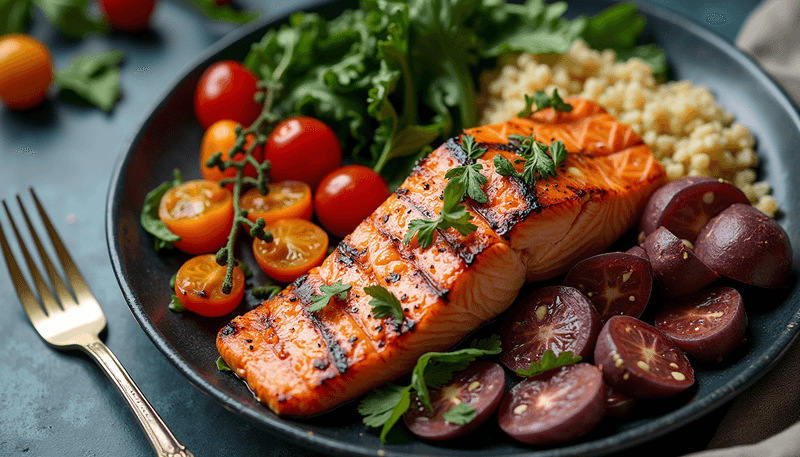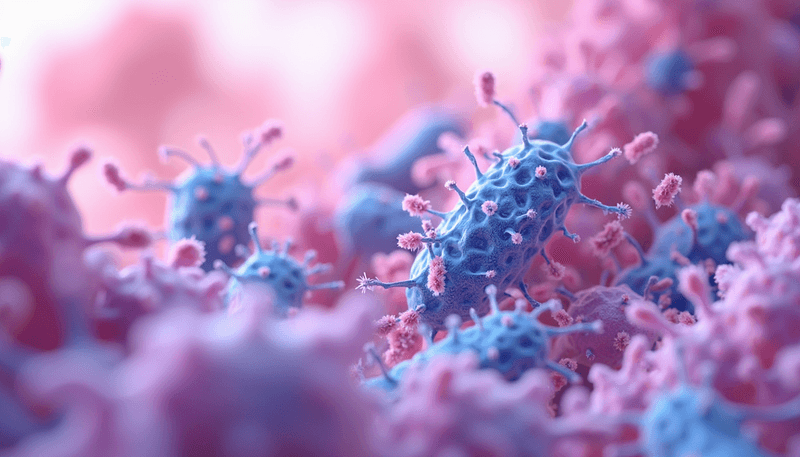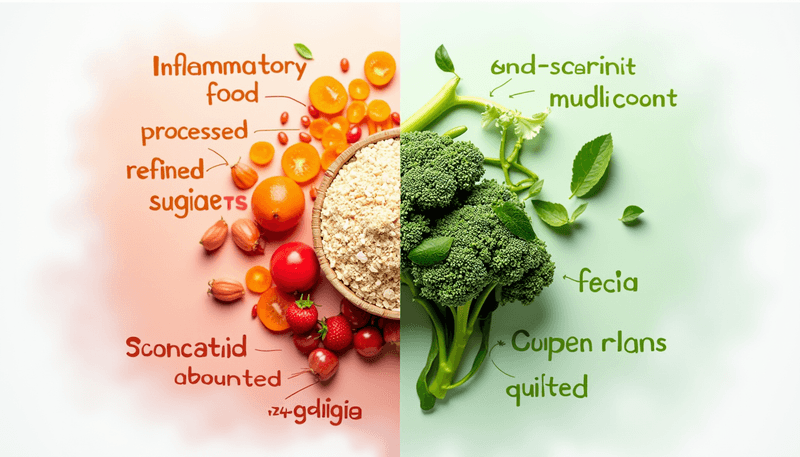Diet Changes May Ease Menopause Symptoms

Hot flashes, mood swings, and sleepless nights – the journey through menopause can feel like navigating a storm without a compass. But what if your kitchen could be the sanctuary you've been searching for? New research reveals compelling connections between dietary choices and menopause symptom relief, offering hope through science-backed dietary strategies.
The Power of Anti-Inflammatory Foods
Think of inflammation as a slow-burning fire in your body. During menopause, this fire can intensify, making symptoms more pronounced. The study found that women who followed an anti-inflammatory diet experienced fewer severe symptoms, especially in sexual health and physical well-being.
"Could your morning smoothie be doing more than just satisfying your hunger?"
Here's what an anti-inflammatory plate looks like:
- Colorful vegetables (especially leafy greens)
- Fresh fruits
- Whole grains
- Low-fat dairy products
- Fish rich in omega-3s
- Tea (particularly green tea)
The science is fascinating: these foods work together to reduce inflammatory markers in your body, similar to how a well-orchestrated symphony creates harmony. When inflammation decreases, your body can better adapt to hormonal changes.
Sexual Wellness Through Diet
One of the most striking findings was the connection between diet and sexual wellness during menopause. Women who maintained an anti-inflammatory diet were less likely to experience severe sexual symptoms.
The mechanism is intriguing: inflammatory foods can affect blood flow and nerve sensitivity, while anti-inflammatory choices support:
- Better blood circulation
- Increased natural lubrication
- Enhanced mood and desire
- Improved tissue health
What small dietary change could you make today to support your sexual wellness?
The Gut-Hormone Connection
Your gut microbiome plays a starring role in hormone balance. The research showed that dietary choices significantly impact this delicate ecosystem. Think of your gut as a garden – the right nutrients help beneficial bacteria flourish, while processed foods and sugars can throw off this balance.
Foods to embrace:
- Probiotic-rich options like yogurt and kefir
- Fiber-rich vegetables
- Fermented foods
- Clean proteins
Foods to limit:
- Processed snacks
- Sugary drinks
- Excessive red meat
- Refined grains
The research suggests that this dietary approach can help predict and potentially improve your menopause journey. It's like having a roadmap for your transition – the clearer the path, the smoother the journey.
Practical Implementation Steps
-
Start with breakfast:
- Replace sugary cereals with oatmeal topped with berries
- Add ground flaxseeds to your morning smoothie
- Choose plain yogurt with fresh fruit instead of flavored varieties
-
Rethink your snacks:
- Keep cut vegetables with hummus ready
- Pack nuts and seeds for on-the-go options
- Replace chips with roasted chickpeas
-
Transform your dinner plate:
- Fill half with colorful vegetables
- Choose fish twice a week
- Experiment with new whole grains like quinoa or farro
The study revealed that consistency matters more than perfection. Small, sustainable changes can lead to significant improvements in menopause symptoms over time.
"Which of these changes feels most doable for you this week?"
Understanding Your Food's Impact
The research used two different measures to assess diet's inflammatory potential: the Dietary Inflammatory Index (DII) and the Food-based Dietary Inflammatory Index (FDII). Both proved effective in predicting symptom severity, with FDII showing slightly better results for overall quality of life.
This means you don't need to count every nutrient – focusing on whole food choices can be just as effective. It's like choosing to take the stairs instead of analyzing the exact number of calories burned – the simple choice often leads to the best results.
The beauty of these findings lies in their simplicity and accessibility. You don't need expensive supplements or complicated meal plans – just thoughtful choices at your local grocery store.
Your next meal is an opportunity to support your body through menopause. Start with one change this week – perhaps swapping your afternoon processed snack for fresh fruit and nuts. Your future self will thank you for taking this step toward better menopause management.
What's one anti-inflammatory food you'll add to your shopping list this week?

Amelia Grace Okonkwo
Amelia Grace Okonkwo is a freelance health writer and author with over 15 years of experience in health journalism, specializing in women's health and autoimmune disorders. With a background in biology and a Master’s in Public Health from Johns Hopkins, she combines scientific accuracy with a storytelling approach to make health information accessible and empowering. Amelia is known for her bestselling book, "The Skin We're In," which explores autoimmune disorders and their impact. She is passionate about delivering practical health insights for women, addressing topics from midlife wellness to mental health.







